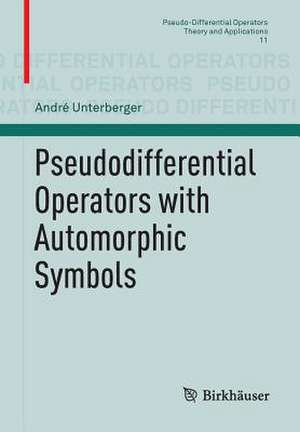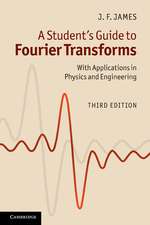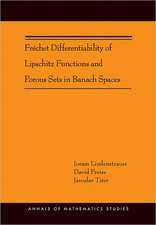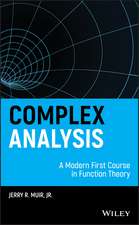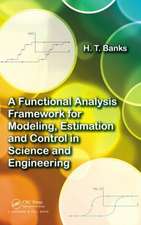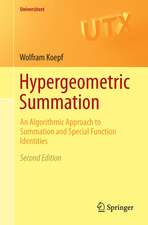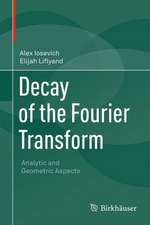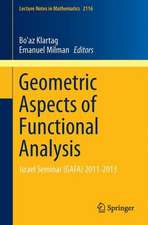Pseudodifferential Operators with Automorphic Symbols: Pseudo-Differential Operators, cartea 11
Autor André Unterbergeren Limba Engleză Paperback – 26 iun 2015
Preț: 385.25 lei
Nou
Puncte Express: 578
Preț estimativ în valută:
73.72€ • 76.82$ • 61.04£
73.72€ • 76.82$ • 61.04£
Carte tipărită la comandă
Livrare economică 03-17 aprilie
Preluare comenzi: 021 569.72.76
Specificații
ISBN-13: 9783319186566
ISBN-10: 3319186566
Pagini: 215
Ilustrații: X, 202 p.
Dimensiuni: 168 x 240 x 15 mm
Greutate: 0.35 kg
Ediția:2015
Editura: Springer International Publishing
Colecția Birkhäuser
Seria Pseudo-Differential Operators
Locul publicării:Cham, Switzerland
ISBN-10: 3319186566
Pagini: 215
Ilustrații: X, 202 p.
Dimensiuni: 168 x 240 x 15 mm
Greutate: 0.35 kg
Ediția:2015
Editura: Springer International Publishing
Colecția Birkhäuser
Seria Pseudo-Differential Operators
Locul publicării:Cham, Switzerland
Public țintă
ResearchCuprins
Introduction.- Basic modular distributions.- From the plane to the half-plane.- A short introduction to the Weyl calculus.- Composition of joint eigenfunctions of (...) and (...).- The sharp composition of modular distributions.- The operator with symbol (...).- from non-holomorphic to holomorphic modular forms.- Index.
Recenzii
“The book under review is devoted to developing asatisfactory Weyl calculus on the class of tempered automorphic distributionsunder the group SL(2, Z). … The book is … readable and is an interesting introductionto the subject. The main ideas are explained in detail and illustrated by exactcomputations.” (Đỗ Ngọc Diệp, Mathematical Reviews, December, 2015)
Textul de pe ultima copertă
The main results of this book combine pseudodifferential analysis with modular form and L-function theory, with the help of explicit spectral-theoretic calculations. The starting point is a notion of modular distribution in the plane, which will be new to most readers and which, under the Radon transformation, relates to the classical notion of non-holomorphic modular form. Holomorphic modular forms are also briefly considered, within a general scheme that addresses quantization theory and elementary but novel representation-theoretic concepts.
Caracteristici
Features a complete study of pseudodifferential operators with automorphic symbols Covers a complete analysis of link between modular distributions (in the plane) and non-holomorphic modular forms in the half-plane Includes an introduction to the case of holomorphic modular forms, linked to the new anaplectic representation and symbolic calculus Includes supplementary material: sn.pub/extras
